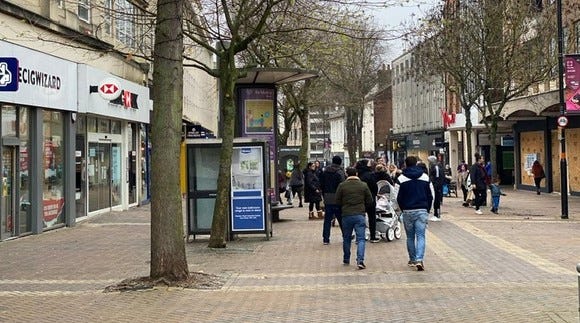Hundreds of Northants residents denied self-isolation support
The scheme has been described as a 'postcode lottery' with just 13% of applications to Northampton Borough Council being approved
By Natalie Bloomer
Northampton residents have been far less likely to get the £500 self isolation grant compared to people in other parts of the county.
Just 13 per cent of the 886 people who applied to Northampton Borough Council (to January 6) were given the grant, which was introduced by the government to support people who are told to self isolate by the NHS test and trace system. This compares to 59 per cent in South Northamptonshire.
The scheme is funded by money from central government but is administered by local councils and is split into two funds. The main fund is for people who receive benefits, the discretionary fund is for people who do not claim benefits but are on a low income. Local authorities can use discretionary grants to support applicants who do not meet the government-set criteria for the main self-isolation scheme.
The figures have been revealed following a series of freedom of information requests submitted by the Trades Union Congress (TUC). Five councils in Northamptonshire provided data up to January 6th. Wellingborough and Daventry did not respond to the FOI and have not answered email requests from NN Journal for latest figures.
In Northampton, where Covid cases have been persistently high throughout much of the pandemic, 22 per cent of people applying to the main fund received a payment while just two per cent of those applying to the discretionary fund were successful.
The TUC believes that low funding, and uncertainty over future funding, could be causing some councils to be reluctant to offer discretionary grants as they fear they might need the money if there is another outbreak. The union says the uncertainty has compounded the “postcode lottery that exists within the scheme”.
Former Labour MP for Northampton North Sally Keeble is outraged by the figures.
“It’s completely scandalous that people in Northampton have lost out so badly. We’ve had an appallingly high level of Covid infection here and the country’s first major factory outbreak. People can’t self-isolate on air,” she said.
“The town’s MPs are Tories, they should have been making sure the criteria for the main government funds weren’t so draconian and they should have taken Northampton Borough Council by the scruff its neck and shaken the discretionary funds out of it to make sure people got the money they need to self-isolate.”
In other areas demand for the financial support has outstripped available funding from the government. In Corby, which has recently had among the highest Covid case rates in England, 75 per cent of the main self-isolation fund was paid out up to January 6 and 100 per cent of the discretionary fund had already been used. The authority now says it has paid out 224 isolation grants in total to a value of £122,000.
In South Northants, the figures were even more stark with payments made totalling 108 per cent of the main fund and 122 per cent of the discretionary fund.
Leader of South Northamptonshire Council Ian McCord says they have taken a pragmatic approach to the payments.
“We wanted to make sure that anyone who is entitled to the payment is able to access it. We’ve followed the guidelines and have pushed out any funding we’ve received from the government but we’ve also set aside some of our own funds to help with our response to the pandemic. Like all local councils it’s been a priority for us to make sure people get the support they need.”
Last month the government announced it would be providing a further £20m to local authorities to help cover the cost of the self-isolation scheme, including £10m to support those who fall outside the scope of the main scheme. The TUC says this is “too little too late” as it would not be enough to satisfy demand. The union is now calling for statutory sick pay to be raised to the level of the real Living Wage of £330 a week and extended to all workers. Midlands regional secretary Lee Barron said:
“No one should be forced to choose between doing the right thing and being plunged into hardship. The current system of patchy self-isolation payments and paltry sick pay just isn’t working. Too many low-paid workers in the East Midlands are going without the financial support they need to self-isolate.
“The government could fix the problem tomorrow by offering decent sick pay to those required to self-isolate. Ministers must stop turning a blind eye and raise statutory sick pay to at least the real Living Wage. And they must ensure that everyone has access to it.”


